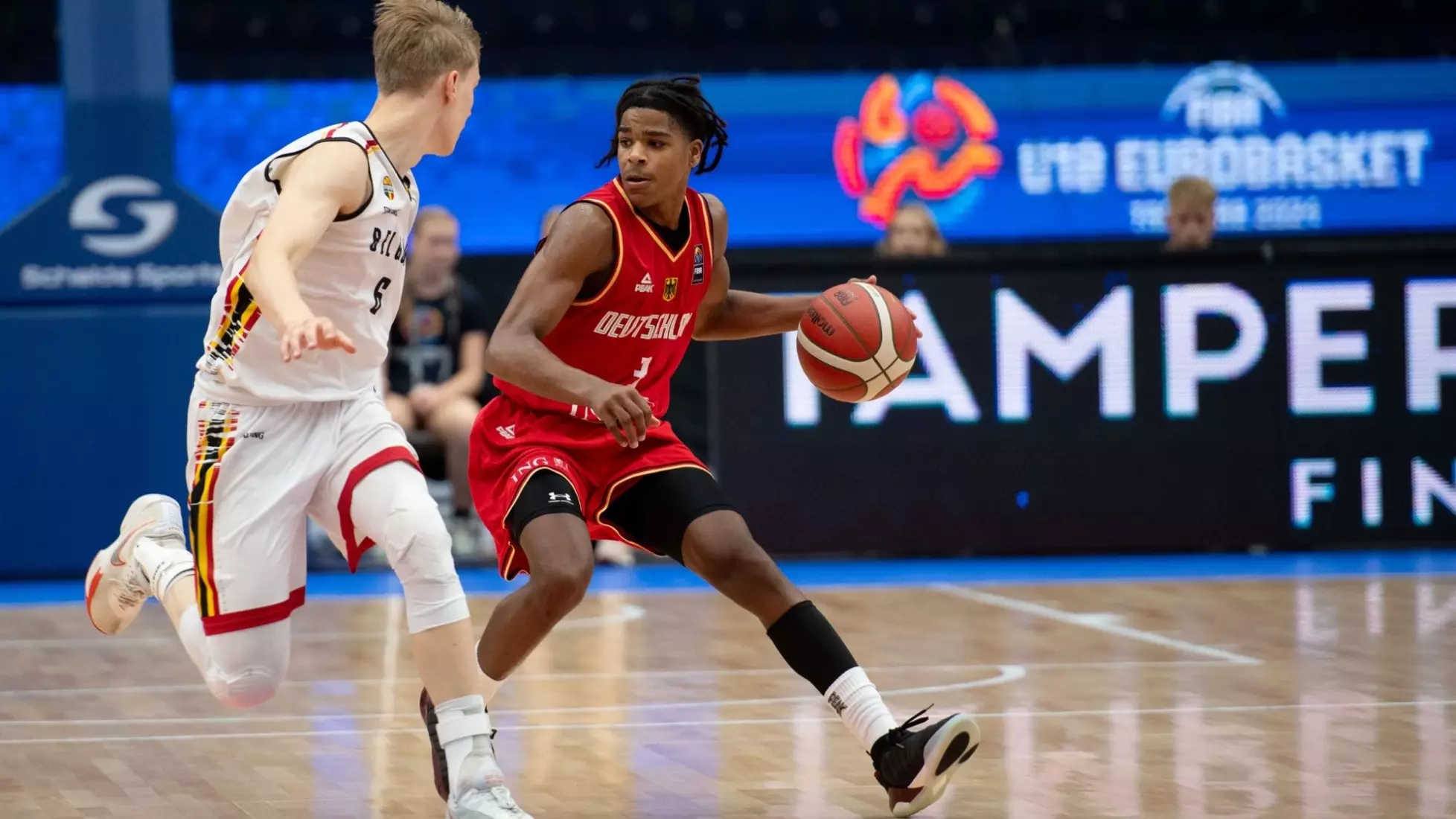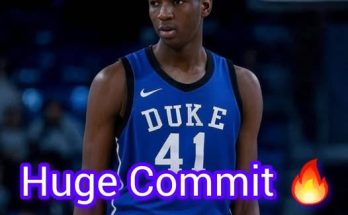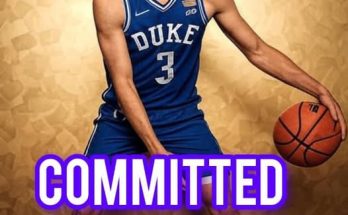The anticipation surrounding the FIBA U19 Basketball World Cup has reached new heights as two prominent figures in American basketball—Texas Tech’s rising star guard Jason Anderson and head coach Grant McCasland—are set to don the red, white, and blue for Team USA in this year’s edition of the tournament. For Anderson, it’s a golden opportunity to prove himself on the international stage, while McCasland’s presence on the coaching staff underscores the national program’s faith in his tactical mind and leadership skills.
This development is significant for multiple reasons. First, the inclusion of Anderson signals the growing reputation of Texas Tech as a program that produces not only elite collegiate talent but players worthy of representing the nation on a global scale. Second, McCasland’s selection is a reflection of his rising stock in the coaching world and his ability to mold competitive teams from the ground up. Their combined presence at the U19 World Cup brings pride to the Red Raider community and sets a strong tone for the future of Texas Tech basketball.
For Anderson, this is more than just a basketball tournament. It’s a stage where stars are born, legacies begin, and careers take flight. At just 18 years old, the electric guard has already made waves in the college basketball world. Known for his blistering speed, court vision, and lockdown defense, Anderson is poised to make a substantial impact for Team USA. His inclusion in the U19 roster was no surprise to those who’ve watched his game evolve. Whether it’s dropping dimes in transition, drilling threes under pressure, or throwing down momentum-shifting dunks, he’s the kind of player built for big moments.
In preparation for the World Cup, Anderson has reportedly been laser-focused. Sources close to the team describe his work ethic as relentless, with early morning workouts, late-night film sessions, and extra time in the gym becoming his norm. This is a player who understands the weight of representing his country and is fully committed to maximizing the opportunity.
Anderson’s style fits perfectly into the high-octane, team-first approach that Team USA often employs. His ability to thrive both on and off the ball makes him a nightmare for opposing defenses. With his speed and aggression, he’s expected to be a key piece in USA’s transition game—pushing the pace and creating chaos for opponents. But what sets him apart isn’t just raw athleticism; it’s his poise. In clutch situations, Anderson has shown maturity beyond his years, capable of steadying the ship and making high-IQ decisions under pressure.
Meanwhile, Coach Grant McCasland’s selection to the coaching staff is a nod to the respect he’s garnered across the basketball landscape. His defensive-minded, detail-oriented approach to the game has led to consistent success at every level he’s coached. At Texas Tech, McCasland quickly earned a reputation for turning a gritty, underdog roster into a disciplined and tough-minded unit. His emphasis on effort, execution, and defense aligns closely with the core principles of Team USA basketball.
McCasland’s presence on the U19 staff isn’t just symbolic—it’s strategic. His deep understanding of defensive schemes, coupled with his ability to quickly build team chemistry, will be invaluable in a tournament format that demands rapid cohesion and adaptability. With little time to prepare, teams must gel quickly, and McCasland has made a career out of getting players to buy in fast and play selfless basketball.
From a Texas Tech perspective, this moment is monumental. Rarely does a single program have both a player and a coach involved at the national team level, particularly at a global tournament as competitive and prestigious as the U19 World Cup. It’s a powerful signal that the Red Raiders are not just participants in the college basketball ecosystem—they’re influencers. For recruits, this serves as a glowing endorsement of Texas Tech as a destination for serious development, exposure, and opportunity.
The FIBA U19 World Cup has long been a launching pad for future NBA stars. Alumni include names like Jayson Tatum, Cade Cunningham, R.J. Barrett, and Paolo Banchero. Anderson now steps into that pipeline with a chance to not only follow in those footsteps but perhaps to carve out a path uniquely his own. Every possession, every bucket, every defensive stop will be watched not only by American fans but by scouts, executives, and analysts from around the globe.
For McCasland, the World Cup offers a unique kind of pressure—a condensed schedule, unfamiliar opponents, and the constant expectation of gold. But it also presents an ideal environment to showcase his skills on an international platform. A strong performance in this role could open doors, enhance his national profile, and add another layer of prestige to his resume.
Off the court, the synergy between Anderson and McCasland is a story worth watching. Their shared connection to Texas Tech and mutual respect can only help foster better communication and strategy for Team USA. Anderson already knows what McCasland expects defensively and what kind of pace he likes to set offensively. That familiarity could prove to be a major asset in a setting where continuity is rare.
While Team USA always enters tournaments as a favorite, the global basketball landscape has never been more competitive. Countries like Spain, France, Canada, and Serbia have built formidable youth programs, and the days of American dominance without resistance are gone. Every game will be a battle, every mistake magnified. But with Anderson slicing through defenders and McCasland orchestrating from the bench, Team USA has two weapons many opponents would envy.
From a personal standpoint, Anderson’s journey to this point hasn’t been without obstacles. Overlooked by some major programs out of high school, he chose Texas Tech because he believed in McCasland’s vision and the chance to play meaningful minutes early. That decision has paid dividends. Now, just a year later, he’s wearing the stars and stripes on the world stage—an honor few get to experience. His story is a testament to perseverance, belief, and the power of finding the right fit.
Similarly, McCasland’s rise hasn’t been linear. He’s climbed the ladder step by step, from assistant roles to mid-major head coach, and now leading one of the toughest teams in the Big 12. His evolution has been fueled by a relentless drive to teach, inspire, and compete at the highest level. The U19 World Cup gives him a new challenge—and he’s embracing it with open arms.
As the tournament tips off, all eyes will be on how Team USA performs. But for Texas Tech fans, there’s a deeper pride at stake. Watching one of their own lead the team from the sidelines and another electrify on the court is more than just a moment—it’s a movement. A signal that Lubbock is a breeding ground for excellence, grit, and global ambition.
Regardless of how the U19 World Cup plays out, Anderson and McCasland have already etched their names into the fabric of Team USA’s basketball legacy. They’ve earned this moment through hard work, dedication, and an unyielding commitment to their craft. And if the past is any indication, they’re not going there just to participate—they’re going to win, to dominate, and to bring the gold back home.
For now, the Red Raider community will watch proudly from afar, knowing their stars are shining on the world’s biggest stage. The U19 World Cup is about to begin, and Anderson and McCasland are ready to write the next chapter—one that may just change the course of their careers forever.



